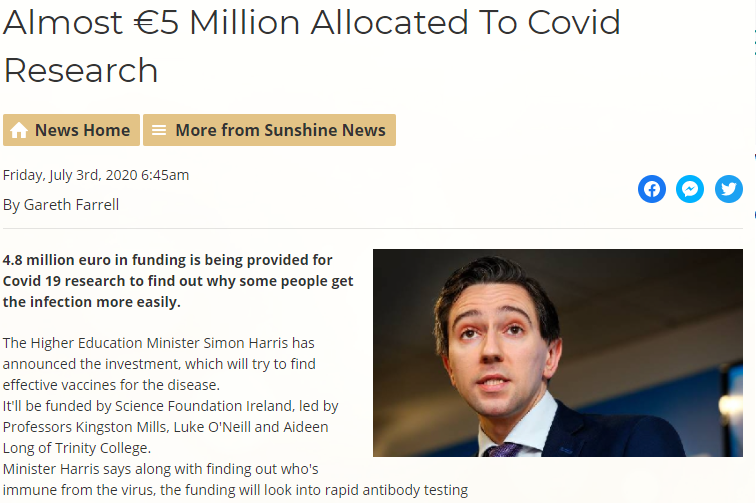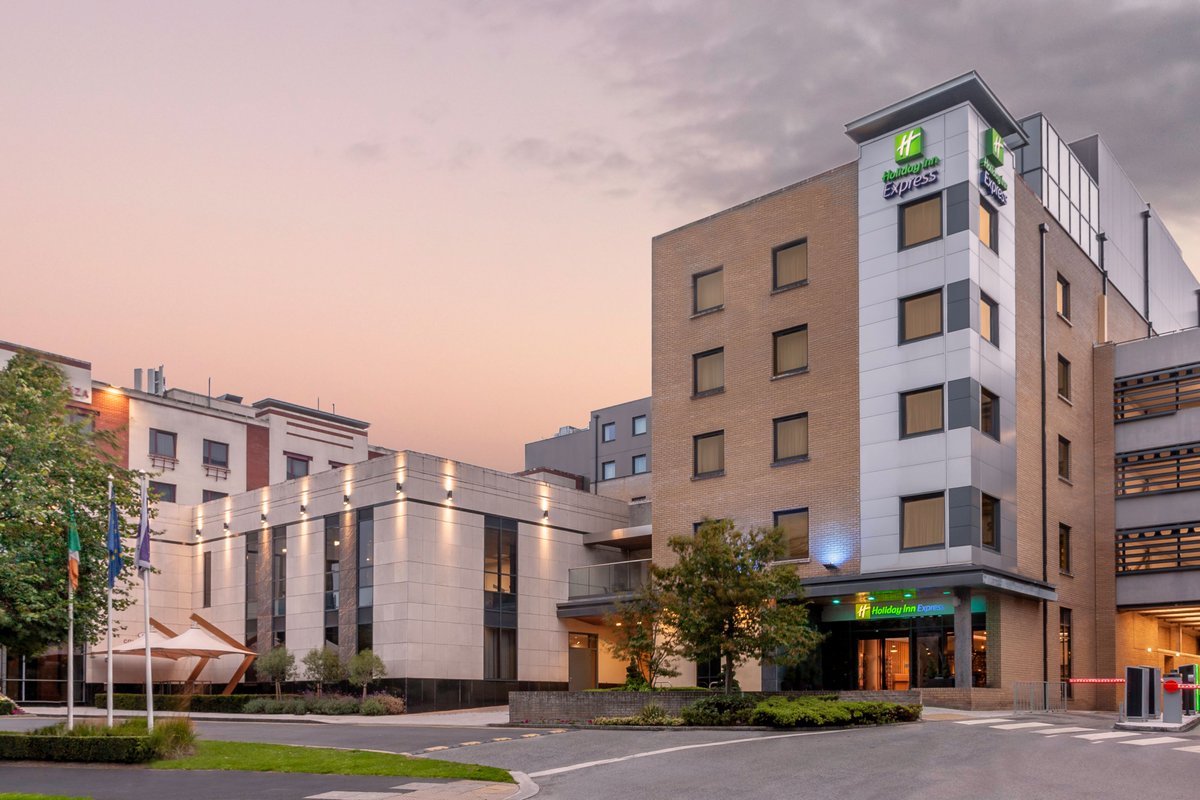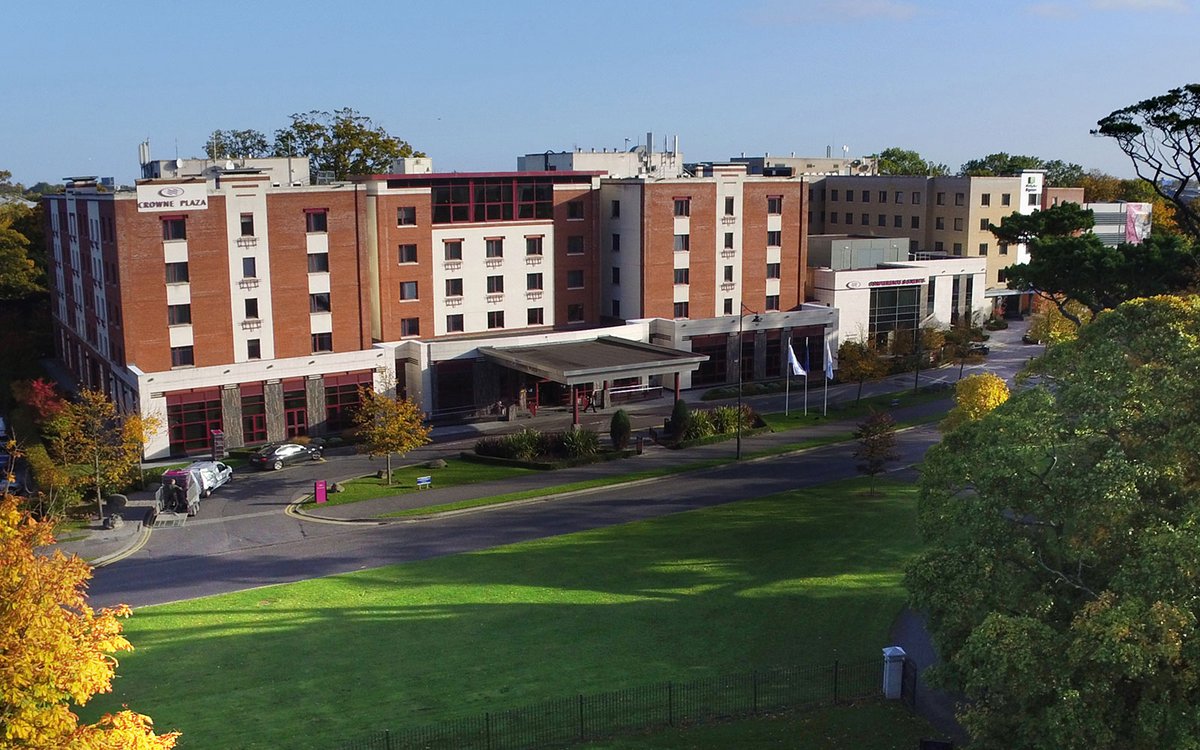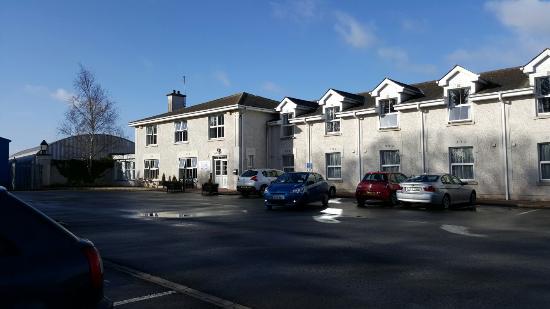If you asked your barber whether you needed a haircut, would you expect an unbiased answer?
And what would you expect, if you asked the vaccine industry whether the world needed more vaccines – would they say no?
It’s time to spill the beans, with a thread. Strap yourself in.
And what would you expect, if you asked the vaccine industry whether the world needed more vaccines – would they say no?
It’s time to spill the beans, with a thread. Strap yourself in.

A few disclaimers.
Firstly, believing things which are in your economic self-interest doesn’t make you a bad person. It’s completely normal.
Like millions of others, I would benefit financially from the scrapping of Covid-19 rules. I have no hesitation in acknowledging that.
Firstly, believing things which are in your economic self-interest doesn’t make you a bad person. It’s completely normal.
Like millions of others, I would benefit financially from the scrapping of Covid-19 rules. I have no hesitation in acknowledging that.
But what about the experts who hype the risks from Covid-19? What if they might benefit from the fear they generate?
We should still trust that they act in good faith, and we should recognise their expertise (we recognise our barber’s expertise in cutting hair, after all).
We should still trust that they act in good faith, and we should recognise their expertise (we recognise our barber’s expertise in cutting hair, after all).
The people I’m about to review are all brilliant minds, with illustrious careers and countless valuable achievements.
All I’m saying is: let’s be realistic about their incentives.
Here’s some information on Covid-19 experts you often see in the Irish (and sometimes UK) media.
All I’m saying is: let’s be realistic about their incentives.
Here’s some information on Covid-19 experts you often see in the Irish (and sometimes UK) media.
PROFESSOR LUKE O’NEILL
O’Neill is Chair of Biochemistry at TCD.
His links to the pharma industry are as follows: he's a co-founder of Sitryx, in which the pharmaceutical giant GlaxoSmithKline (GSK), a developer of Covid-19 vaccines, has invested millions of dollars.

O’Neill is Chair of Biochemistry at TCD.
His links to the pharma industry are as follows: he's a co-founder of Sitryx, in which the pharmaceutical giant GlaxoSmithKline (GSK), a developer of Covid-19 vaccines, has invested millions of dollars.


O’Neill’s team at TCD is said to be “working flat out” on Covid-19 treatments. O’Neill says “Sitryx is interested in our work”.
In July, the Irish government awarded €4.8 million to a team of researchers, including O’Neill, for work which might lead to Covid-19 vaccinations.
In July, the Irish government awarded €4.8 million to a team of researchers, including O’Neill, for work which might lead to Covid-19 vaccinations.

ASSISTANT PROFESSOR TOMÁS RYAN
Ryan is a neuroscientist at the School of Biochemistry & Immunology at TCD (where O’Neill is Chair of Biochemistry).
Ryan has ties to the pharmaceutical industry through Wellcome Trust, who funded his PhD at Cambridge University with a Fellowship.
Ryan is a neuroscientist at the School of Biochemistry & Immunology at TCD (where O’Neill is Chair of Biochemistry).
Ryan has ties to the pharmaceutical industry through Wellcome Trust, who funded his PhD at Cambridge University with a Fellowship.

Wellcome is a very wealthy foundation (£26bn). It has historic ties with GSK (formerly known as Glaxo Wellcome), and is hugely active in vaccine research.
Wellcome created the “COVID-Zero” campaign. Ryan is one of the most prominent campaigners for "Zero Covid Island".

Wellcome created the “COVID-Zero” campaign. Ryan is one of the most prominent campaigners for "Zero Covid Island".


SIR JEREMY FARRAR (UK)
The links between Wellcome and other pro-vaccine organisations are very interesting.
Sir Jeremy is in charge at Wellcome. He's also a member of the UK’s SAGE and a co-founder and board member of the Coalition for Epidemic Preparedness Innovations (CEPI).
The links between Wellcome and other pro-vaccine organisations are very interesting.
Sir Jeremy is in charge at Wellcome. He's also a member of the UK’s SAGE and a co-founder and board member of the Coalition for Epidemic Preparedness Innovations (CEPI).

CEPI is funded by Wellcome, Bill and Melinda Gates Foundation, and the EU.
Its goal is “to stimulate and accelerate the development of vaccines”. It created COVAX (along with the WHO & The Vaccine Alliance).
COVAX seeks to produce two billion doses of Covid-19 vaccine in 2021.
Its goal is “to stimulate and accelerate the development of vaccines”. It created COVAX (along with the WHO & The Vaccine Alliance).
COVAX seeks to produce two billion doses of Covid-19 vaccine in 2021.

PROFESSOR SAM MCCONKEY
McConkey is Head of the Department of International Health & Tropical Medicine at Royal College of Surgeons.
He’s also Director of the European Vaccine Initiative (EVI), an organisation whose objective is “to spearhead global vaccine development efforts”.
McConkey is Head of the Department of International Health & Tropical Medicine at Royal College of Surgeons.
He’s also Director of the European Vaccine Initiative (EVI), an organisation whose objective is “to spearhead global vaccine development efforts”.

EVI’s donors include CEPI (see above). Other major donors are the EU and the World Health Organisation.
In July 2020, McConkey said in relation to EVI that “we are involved in seeking funding for some Phase 2 trials and Phase 3 trials and staff” for Covid-19 vaccine candidates.
In July 2020, McConkey said in relation to EVI that “we are involved in seeking funding for some Phase 2 trials and Phase 3 trials and staff” for Covid-19 vaccine candidates.

PROFESSOR GERRY KILLEEN
Killeen is AXA Research Chair in Applied Pathogen Ecology at UCC.
He spent many years in Africa, studying malaria.
In 2005, he was awarded a Wellcome Trust Fellowship, to assist this research. He has in turn sponsored applicants for these Fellowships.
Killeen is AXA Research Chair in Applied Pathogen Ecology at UCC.
He spent many years in Africa, studying malaria.
In 2005, he was awarded a Wellcome Trust Fellowship, to assist this research. He has in turn sponsored applicants for these Fellowships.
In 2007, a team of three malaria-focused researchers, including Killeen, received nearly $20 million in funding from the Bill and Melinda Gates Foundation.
As of 2019, Killeen was still publishing malaria research funded by Wellcome Trust and Bill and Melinda Gates Foundation.

As of 2019, Killeen was still publishing malaria research funded by Wellcome Trust and Bill and Melinda Gates Foundation.


PROFESSOR KINGSTON MILLS
Mills is Professor of Experimental Immunology at TCD. He has said that vaccinating the entire Irish population is needed to generate herd immunity for Covid-19.
In 2016, Mills began work on a €28 million project to find a vaccine for whooping cough.
Mills is Professor of Experimental Immunology at TCD. He has said that vaccinating the entire Irish population is needed to generate herd immunity for Covid-19.
In 2016, Mills began work on a €28 million project to find a vaccine for whooping cough.
Benefactors included the EU, the European Federation of Pharmaceutical Industries & Associations, and the Bill & Melinda Gates Foundation.
This year, Mills was on the team awarded €4.8 million by the Irish government, seeking to design effective Covid-19 vaccines.

This year, Mills was on the team awarded €4.8 million by the Irish government, seeking to design effective Covid-19 vaccines.


PATRICIA KEARNEY, of the COVID-Zero campaign, received a Wellcome Trust Fellowship back in 2003.
GABRIEL SCALLY, also promoting COVID-Zero, has been funded by Wellcome Trust and employed by WHO.
Top WHO donors include Bill & Melinda Gates Foundation and the Vaccine Alliance.

GABRIEL SCALLY, also promoting COVID-Zero, has been funded by Wellcome Trust and employed by WHO.
Top WHO donors include Bill & Melinda Gates Foundation and the Vaccine Alliance.


CONCLUSIONS
No hard conclusions this time, I'm afraid. Instead, I'm going to offer you some advice.
As you sit in the ruins of your economy and your formerly free society, and you wonder what comes next, apply some Roman wisdom and ask yourself the question: cui bono?
No hard conclusions this time, I'm afraid. Instead, I'm going to offer you some advice.
As you sit in the ruins of your economy and your formerly free society, and you wonder what comes next, apply some Roman wisdom and ask yourself the question: cui bono?

PS: Here's a bonus for my UK audience.
Devi Sridhar has worked for the World Economic Forum, Wellcome Trust and IHME - a creation of the Bill and Melinda Gates Foundation.
And she's linked with Global Health Governance - also funded by Wellcome Trust.
Coincidences? You decide.
Devi Sridhar has worked for the World Economic Forum, Wellcome Trust and IHME - a creation of the Bill and Melinda Gates Foundation.
And she's linked with Global Health Governance - also funded by Wellcome Trust.
Coincidences? You decide.

• • •
Missing some Tweet in this thread? You can try to
force a refresh















